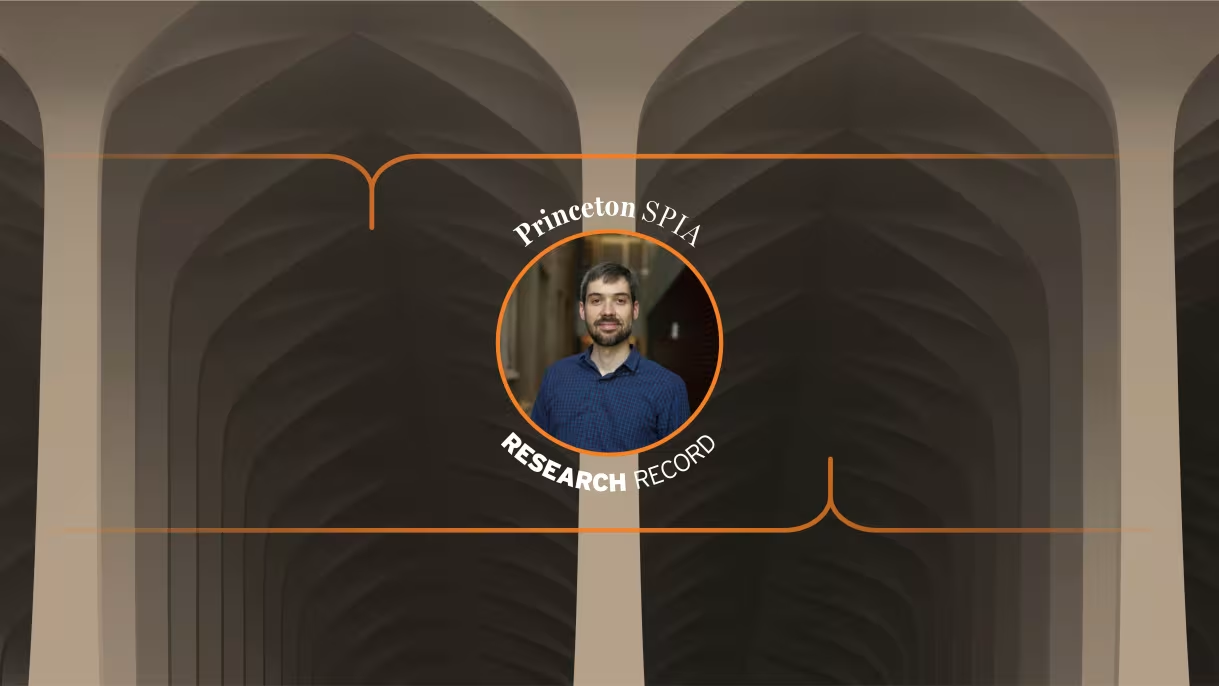

Research Record: People Favor Sanctioning Extreme Online Hate Speech
Princeton SPIA’s Research Record series highlights the vast scholarly achievements of our faculty members, whose expertise extends beyond the classroom and into everyday life.
If you’d like your work considered for future editions of Research Record, click here and select “research project.”
The Details
- Authors: Andrew Guess (Princeton University), Simon Munzert (Hertie School), Richard Traunmüller (University of Manheim), Pablo Barberá (University of Southern California), JungHwan Yang (University of Illinois Urbana-Champaign)
- Title: Citizen Preferences for Online Hate Speech Regulation
- Journal: PNAS Nexus
The Big Picture
Freedom of speech is a fundamental principle of democracy, but how should it be upheld in practice? This age-old question has perhaps never been more hotly debated than in the era of social media, as companies and governments alike have struggled to define and regulate hateful and violent speech.
To understand how people feel about what is permissible and what should be regulated when it comes to online speech, the researchers asked more than 2,500 participants in Germany and the United States to play the role of a content moderator.
The participants engaged with fictional social media conversations that resulted in responses varying in intensity from harmless to extremely hateful. Then, they were asked to rate the hatefulness of the response and suggest an appropriate action, from deleting the message to issuing a fine or jail time (which, while rare, is not unheard of in Germany’s legal context).
“The shift of public discourse to online platforms has intensified the debate over content moderation by platforms and appropriate rules and norms for online speech,” said co-author Andy Guess, an associate professor of politics and public affairs and director of the Survey Research Center at the Princeton School of Public and International Affairs. “Designing rules that are met with wide acceptance requires learning about public preferences.”
The Findings
Despite the differing traditions of free expression in Germany and the United States, a consensus emerged on the need to sanction extreme forms of hateful speech. Overall, people were 55 percentage points more likely to recommend platform sanctions for extremely violent posts than for moderately discriminatory ones, and 34 percentage points more likely to recommend the same for extreme insults. Many people stopped short of recommending consequences that extended beyond the platform, such as fines or jail time: About half of the Americans and one-third of the Germans opposed such measures.
Yet the challenge of drawing a line on what is considered hateful became evident in the U.S. study: People were more tolerant of hate speech if it came from a group that shared their ideological leanings, and they were more judgmental of hate speech if it came from the other side.
The study also found experimental evidence that exposure to hateful speech reduces tolerance of unpopular opinions.
The Implications
In a world that is increasingly digitally connected, hate speech has become a central concern across the globe. But it’s still highly contentious whether and how speech considered offensive or hateful towards a particular group should be restricted.
“To some extent, whether a given statement constitutes hate speech is in the eye of the beholder,” Guess noted. “That said, we uncovered broad consensus that the most extreme and violent language should be sanctioned in some way by platforms.”
Overall, the study casts doubt on the ability for automation to regulate hate speech, he added. Human judgment is shaped by cultural and political values, making it difficult for an algorithm to effectively moderate speech at scale.
“The fact that we found important differences between our U.S. and German samples illustrates that, even within large, developed, Western countries, it is difficult to achieve full agreement on precisely which values are most important to emphasize when designing rules for online discourse," Guess said. “Given our findings, the utopian ideal of social media as a global town square with shared, universal values has never felt more unattainable.”

